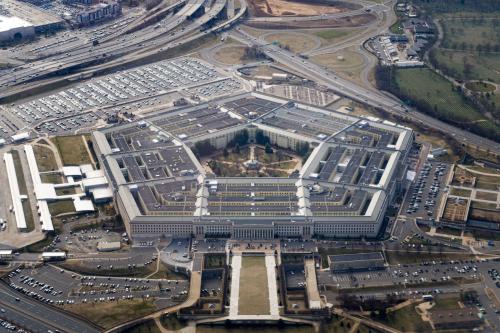President Obama in his address to the nation Wednesday night made absolutely clear that he understands the threat posed to Iraq and Syria — and, ultimately, to the Mideast region as well as Europe and the United States — by the Islamic State in Iraq and Syria.
But his plans for air strikes in Syria, training and equipping the opposition in Syria, and continuing to aid the Iraqi cause will be complex and risky. Even an expanded air strike campaign will be less intense than what we did in Iraq from 2003-2006 when we were generally losing the war there. Air power can stem further ISIS advances when combined with ground forces of local allies, but it cannot be the lead element in taking back territory now held by the enemy.
Reviewing what has happened this summer helps us see why the path ahead will be very difficult. The Obama administration did two main things against ISIS this summer, and it did them both well. But they were the easy parts.
First, the United States bombed ISIS whenever that group tried to expand its area of control beyond the Sunni Arab parts of Syria and Iraq — most notably, in Kurdish parts of Iraq, and near Iraq’s main dams. These were easier places to use air power because the group’s vehicles and weapons were exposed as the ISIS tried to seize new land. But now ISIS is entrenched in cities where air strikes can entail collateral damage to the civilian population.
Obama’s challenge in Syria will also be harder because we have no ground force ally there to speak of. The president mistakenly chose not to undertake a major effort to build a moderate Syrian army two to three years ago. Now we are left with the same hodgepodge of weak, fractured, local resistance elements that we started with. Except now ISIS has gotten stronger along the way.
This part of the president’s plans may therefore take a year or two — if it works, that is. And if it doesn’t work, given the magnitude of the potential threat to America and its allies from ISIS, we will have to go back to the drawing board. Giving up won’t be an option.
Second, the Obama administration pressured the Iraqis to drop their old prime minister, Nouri al-Maliki, under whom the Iraqi army had virtually dissolved because Sunnis would no longer fight for a leader they saw as the “Shiite Saddam.” Only with a new leader, and a government of national unity, would the country’s main Sunni leaders, tribes, and military officers agree to fight for the country to take back land in Iraq’s Sunni Arab heartland, including cities such as Fallujah, Ramadi and Tikrit now held by ISIS.
But even with Obama’s “next phase” plan to increase aid and training to the Iraqis, it remains to be seen, even with new Prime Minister Haider al-Abadi, whether the Iraqi army really will be willing and able to do its own surge, of sorts, to take back land now held by ISIS. It may be aided by tribal militias and other groups. But this will still entail hard fighting for the army — an institution that was turning tail a few months ago and letting ISIS seize major swaths of the nation’s territory.
Getting the Iraqi army to do this kind of fighting anytime soon will likely require more than a one-time change of political leadership. I believe it will also require, among other things, America’s willingness to deploy mentoring teams into the field with individual combat units of the Iraqi armed forces. We may need to send commandos to work with Iraqi special forces for a time, too.
We are in this for the long haul. The president will, alas, never again be able to say that he ended two wars on his watch, as he has often wanted to do in the past. That’s OK, as long as he keeps this country safe. American national security is his core responsibility, and the bottom-line requirement for all of us.
This opinion originally appeared in USA Today.
The Brookings Institution is committed to quality, independence, and impact.
We are supported by a diverse array of funders. In line with our values and policies, each Brookings publication represents the sole views of its author(s).



Commentary
Op-edObama ISIS Plan Will be Risky
September 11, 2014